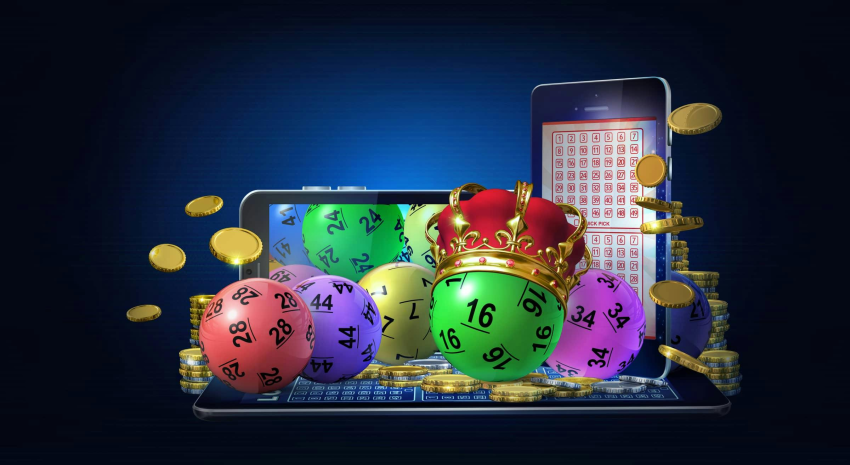Lottery gambling captivates millions of players worldwide, providing an intoxicating mix of hope, excitement, and the tantalizing possibility of life-altering winnings. Each ticket bought is not just a gamble but a gateway to dreams woven with the threads of aspiration and desire. The allure of potentially hitting the jackpot sparks intricate emotional drivers, drawing individuals into a cycle of anticipation and engagement despite the odds stacked against them. Furthermore, the psychology behind lottery gambling unveils the impact of cognitive biases, like the gambler’s fallacy, which leads players to believe their chances are better than reality suggests. Understanding these elements is essential in comprehending why we participate in such high-stakes games, balancing the thrill of chance with the risks of gambling addiction and its emotional toll.
The phenomenon of lottery participation can be viewed through various lenses, including the intriguing influences of chance-based games that evoke deep psychological responses. Being drawn to such games often stems from an underlying need for emotional release or excitement, presenting an avenue to escape everyday monotony. Many people become enchanted by the prospect of winning unprecedented fortunes, giving rise to social engagements that amplify the excitement of their betting experiences. This sense of collective hope can drive individuals to join syndicates, cultivating connections and shared dreams as they collectively chase fortune. Through this exploration of gamified experiences and shared aspirations, we can better grasp the powerful allure that lottery games hold over many individuals.
Understanding the Emotional Drivers in Lottery Gambling
Lottery gambling is often driven by deep emotional needs, such as escape and excitement, which can overshadow the harsh realities of the odds involved. Individuals frequently turn to the lottery as a temporary relief from stress, loneliness, or boredom. The anticipation of a life-changing win can help foster a sense of hope, allowing players to momentarily forget their woes. This emotional engagement becomes addictive over time, as the simple act of purchasing a ticket ignites dreams of prosperity that may seem unattainable in daily life.
Moreover, excitement plays a pivotal role in lottery participation. The thrill of waiting for the draw creates a unique emotional high that is difficult for many to replicate elsewhere. This phenomenon can often lead individuals to chase that euphoric feeling, layering their experiences with emotional highs that reinforce the likelihood of repeated gambling behaviors. In this sense, the emotional landscape of lottery gambling is not simply about monetary gain; it ultimately taps into the human psyche’s intrinsic desire for hope and the exhilarating rush of possibility.
Cognitive Biases: The Irrational Reasons Behind Lottery Gambling
Cognitive biases significantly shape how individuals approach lottery gambling, often leading them to make illogical choices. One such bias is the gambler’s fallacy, where players mistakenly believe that past draws influence future outcomes in random games of chance. For instance, many may gravitate towards numbers that haven’t won recently, convinced that they are ‘due’ for a win. This cognitive distortion reframes their gambling experience, making them feel as though they exert some control over the randomness inherent in the lottery.
Furthermore, players frequently overestimate their chances of winning, driven by an inflated belief in the winnability of lottery games. This irrational optimism can lead individuals to persist in buying the tickets despite knowing that the odds are overwhelmingly against them. The powerful allure of potentially winning shapes their gambling behavior, deepening their emotional investment in the game. By underestimating the statistical reality, they find themselves caught in a loop of gambling, as they continuously seek the validation of winning against odds that are firmly defined by chance.
Frequently Asked Questions
What psychological factors contribute to lottery gambling addiction?
Lottery gambling addiction is often driven by emotional aspects such as feelings of stress and loneliness. Many players use lottery games as an escape, seeking hope and excitement to cope with their daily struggles. Cognitive biases, like the gambler’s fallacy, lead individuals to believe they can predict outcomes, further entrenching them in gambling behaviors despite the low odds of winning. Understanding these psychological drivers can help address potential gambling addiction issues.
How do emotions like hope and excitement influence lottery gambling behavior?
Emotions such as hope and excitement play a crucial role in lottery gambling. The anticipation of winning creates a sense of exhilaration, encouraging repeated participation despite the odds. Lottery players often experience an adrenaline rush that not only heightens their emotional state but also reinforces their desire to gamble. This thrill can lead to a cycle of gambling, where the quest for that euphoric feeling becomes increasingly compelling, making lottery gambling a captivating yet risky activity.
| Key Point | Description |
|---|---|
| Emotional Drivers | Lottery gambling acts as an emotional escape for individuals experiencing stress, boredom, or loneliness. |
| Cognitive Biases | Players often fall prey to the gambler’s fallacy and overestimate their odds of winning, leading to illogical decision-making. |
| Hope and Excitement | Purchasing a lottery ticket brings feelings of hope and the thrill of potential wealth, which can be addictive. |
| Social Aspects | Lottery gambling often involves social interactions, where players participate in groups, enhancing the overall experience. |
| Long-Term Engagement | Over time, motivations may shift from excitement to escapism, highlighting the risks of gambling addiction. |
Summary
Lottery gambling entices millions, weaving a complex narrative of hope and excitement. From thrilling dreams of wealth to social bonding through group plays, the allure is undeniable. People often turn to lottery gambling not just for the chance of winning, but as an escape from the mundane challenges of life. The captivating excitement of buying a ticket and awaiting the draw can create a unique high, drawing individuals back time and again. However, understanding the psychological triggers and potential downsides is crucial; lottery gambling should remain a source of entertainment rather than a dependency. By recognizing these elements, players can enjoy the thrill responsibly while navigating their engagement with this intriguing pastime.
